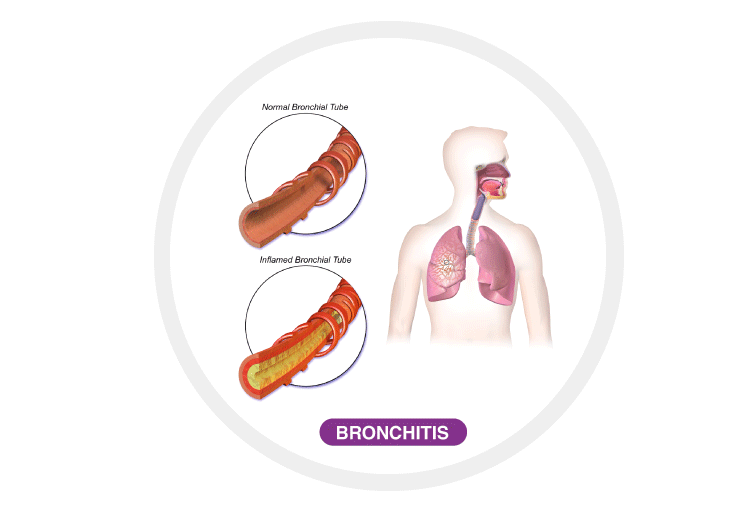1
Question
What is a lung disease?
What is a lung disease?
Open in App
Solution
Lung disease:
- Lungs are a vital organ of the body and perform many functions including intake of oxygen and exhalation of carbon dioxide from the body.
- Any lung problem due to which they cannot work efficiently is termed a lung disease.
- Lungs are prone to many infections and disease as the outside air carry many pathogens and allergens.
- Smoking, pollution, and infectious pathogens are major causes of lung diseases.
Three main types of lung diseases are:
- Diseases of the airway: In this type bronchial tube is affected due to which passage of air is blocked or reduced.
- Disease of the lung tissue: The outermost tissue covering of lungs known as pleura is affected in this case. the lung tissue grows in an unusual way due to bacterial or viral infection leading to expansion or bending of lung structure that causes difficulties in breathing.
- Lung Circulation Disease: The disease associated with coagulation, blocking, or swelling of blood vessels in the lungs. due to which oxygen and carbon dioxide uptake and removal become difficult.
Common lung diseases:
- Asthma:
- A disease due to which airways of the lungs become narrow, swell, inflated, and produce extra mucus.
- Asthma causes difficulty in breathing. it is the most common type of lung disease.

2. Pneumonia:
- The air sacs in one or both lungs inflame in pneumonia.
- The air sacs may fill with fluid or pus, causing cough with phlegm or pus, fever, chills, and difficulty breathing.

3. Bronchitis:
- In bronchitis the lining of the bronchial tube gets inflammation.
- Bronchitis patients often cough up thickened mucus, which can be discolored.
- It can be either chronic or acute.

Lung disease:
- Lungs are a vital organ of the body and perform many functions including intake of oxygen and exhalation of carbon dioxide from the body.
- Any lung problem due to which they cannot work efficiently is termed a lung disease.
- Lungs are prone to many infections and disease as the outside air carry many pathogens and allergens.
- Smoking, pollution, and infectious pathogens are major causes of lung diseases.
Three main types of lung diseases are:
- Diseases of the airway: In this type bronchial tube is affected due to which passage of air is blocked or reduced.
- Disease of the lung tissue: The outermost tissue covering of lungs known as pleura is affected in this case. the lung tissue grows in an unusual way due to bacterial or viral infection leading to expansion or bending of lung structure that causes difficulties in breathing.
- Lung Circulation Disease: The disease associated with coagulation, blocking, or swelling of blood vessels in the lungs. due to which oxygen and carbon dioxide uptake and removal become difficult.
Common lung diseases:
- Asthma:
- A disease due to which airways of the lungs become narrow, swell, inflated, and produce extra mucus.
- Asthma causes difficulty in breathing. it is the most common type of lung disease.

2. Pneumonia:
- The air sacs in one or both lungs inflame in pneumonia.
- The air sacs may fill with fluid or pus, causing cough with phlegm or pus, fever, chills, and difficulty breathing.
3. Bronchitis:
- In bronchitis the lining of the bronchial tube gets inflammation.
- Bronchitis patients often cough up thickened mucus, which can be discolored.
- It can be either chronic or acute.

Suggest Corrections
0
View More
Join BYJU'S Learning Program
Join BYJU'S Learning Program
